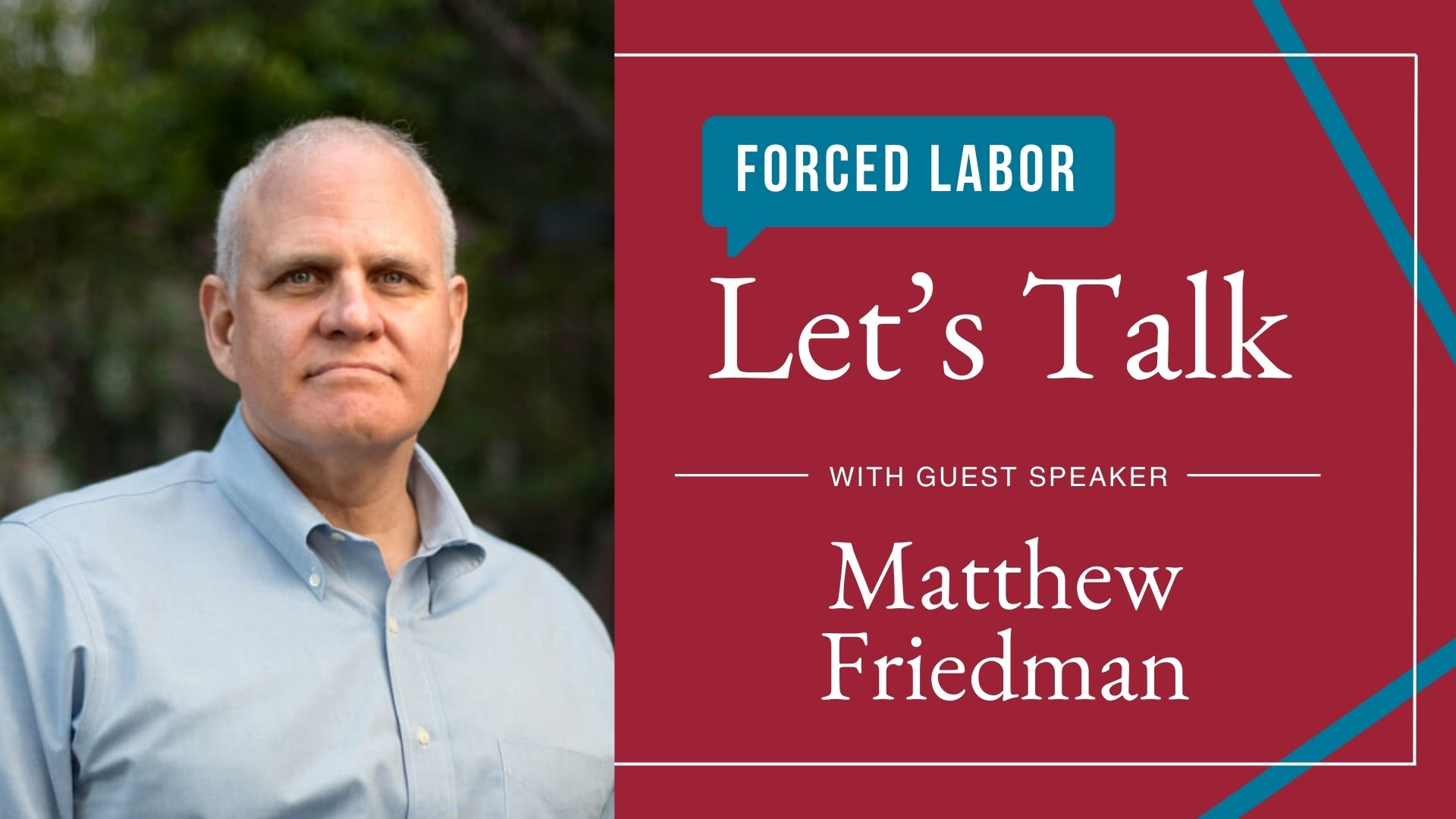

Matthew Friedman was one of our guest speakers for Let's Talk about Forced Labor. Friedman is an accomplished author and chief executive officer of the Mekong Club, an organization that ensures businesses and individuals work to create a slave-free world.
The chat with Friedman covered information surrounding human trafficking and modern-day slavery practices, as well as his work with the Mekong Club across Asia. Friedman explained that slavery awareness and coverage is increasing worldwide, leading to more and more people are learning about the reality of it.
There are currently more than 40 million people enslaved globally, and unfortunately Friedman believes this number has only grown due to the COVID-19 pandemic. However, through the Mekong Club, Friedman has helped free more than 108,000 people from slavery. Friedman said the club’s work has even allowed them to prosecute slavers, imprisoning over 9,000 perpetrators.
While many of us may think of human trafficking and modern slavery as different, the reality is that they are essentially one in the same. Friedman explained some of the ways people find themselves unwittingly trapped into modern slavery, including forms of debt foisted upon the individual, withheld wages and retention of identification. Additionally, the more drastic aspects such as threats to oneself or family, physical violence and/or restricted movement also tend to be the more commonly-depicted elements of slavery.
In the United States alone, there are an estimated 700,000 people enslaved. This is most commonly through agriculture, domestic work or prostitution. Forced labor in general makes up the majority of modern slavery, and forced prostitution makes up about 25% of forced labor, with women and children as young as 11 often being trafficked, according to Friedman.
Through groups like Friedman’s Mekong Club, work is being done to counter human trafficking and modern slavery. Friedman and the Mekong Club work with banks, manufacturers, hospitality businesses, retailers and more to address slavery and human trafficking issues. Through education, the Mekong Club guides companies on assessing themselves and their supply chains for these types of ethical risks.
Thanks to people like Friedman and organizations like the Mekong Club, more legislation is being passed, leading governments and the private sector to become more involved in creating and implementing ethical business practices.
Companies are addressing modern slavery through policy changes as well as employee training and monitoring. In recent years, technology such as apps are being utilized even more to assist with on-the-ground monitoring, according to Friedman. The apps mentioned are said to enhance the auditors’ ability to collect accurate worker feedback, which in turn aids businesses in becoming more ethical and creating awareness about modern slavery.
With increased awareness, better technology, and groups like the Mekong Club tackling these challenges together with the private industry, we have the opportunity to eradicate modern slavery wherever it resides. Every step in that direction enhances individual lives and creates more sustainable businesses.






